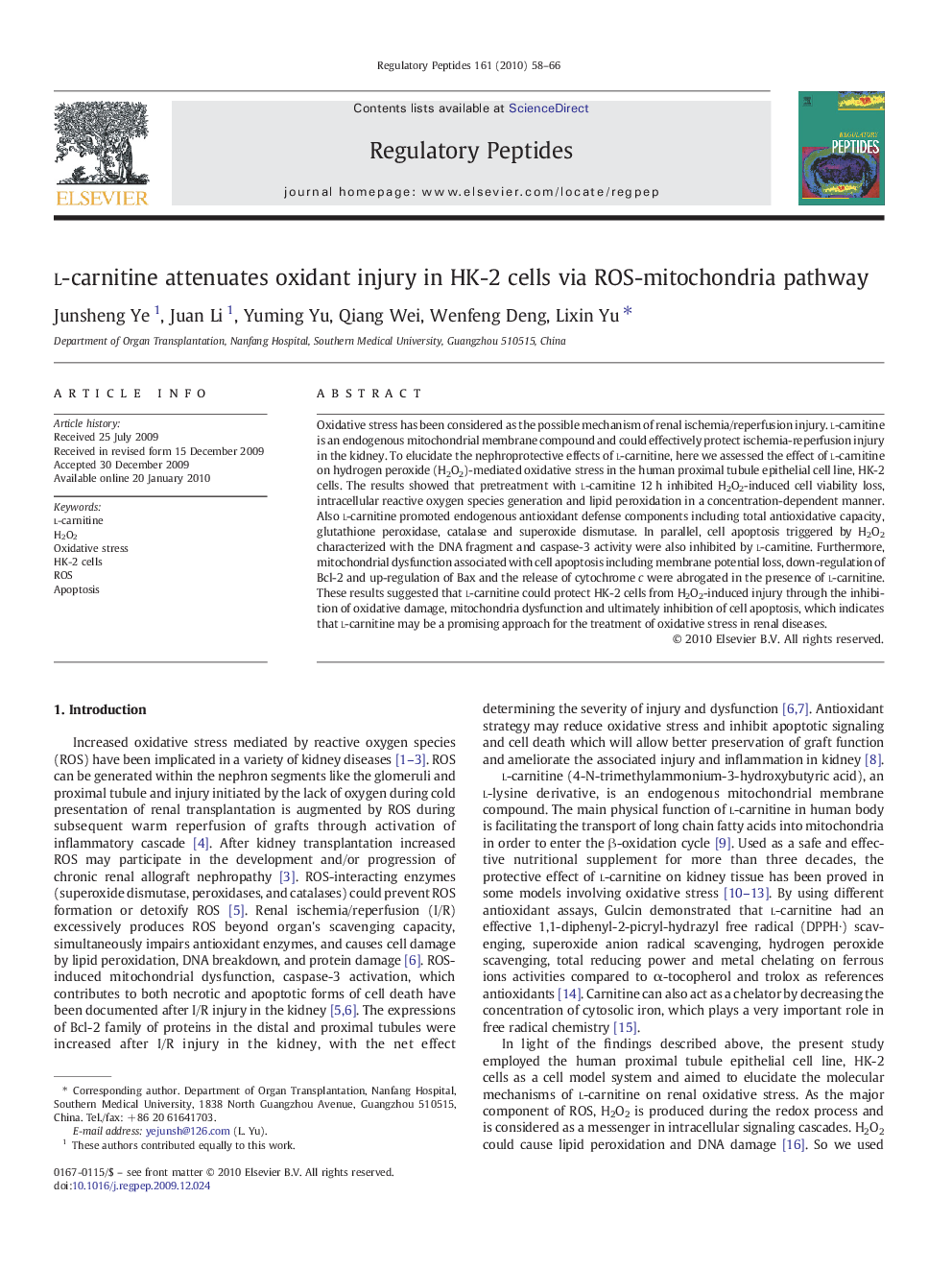| Article ID | Journal | Published Year | Pages | File Type |
|---|---|---|---|---|
| 2022838 | Regulatory Peptides | 2010 | 9 Pages |
Abstract
Oxidative stress has been considered as the possible mechanism of renal ischemia/reperfusion injury. l-carnitine is an endogenous mitochondrial membrane compound and could effectively protect ischemia-reperfusion injury in the kidney. To elucidate the nephroprotective effects of l-carnitine, here we assessed the effect of l-carnitine on hydrogen peroxide (H2O2)-mediated oxidative stress in the human proximal tubule epithelial cell line, HK-2 cells. The results showed that pretreatment with l-carnitine 12Â h inhibited H2O2-induced cell viability loss, intracellular reactive oxygen species generation and lipid peroxidation in a concentration-dependent manner. Also l-carnitine promoted endogenous antioxidant defense components including total antioxidative capacity, glutathione peroxidase, catalase and superoxide dismutase. In parallel, cell apoptosis triggered by H2O2 characterized with the DNA fragment and caspase-3 activity were also inhibited by l-carnitine. Furthermore, mitochondrial dysfunction associated with cell apoptosis including membrane potential loss, down-regulation of Bcl-2 and up-regulation of Bax and the release of cytochrome c were abrogated in the presence of l-carnitine. These results suggested that l-carnitine could protect HK-2 cells from H2O2-induced injury through the inhibition of oxidative damage, mitochondria dysfunction and ultimately inhibition of cell apoptosis, which indicates that l-carnitine may be a promising approach for the treatment of oxidative stress in renal diseases.
Related Topics
Life Sciences
Biochemistry, Genetics and Molecular Biology
Biochemistry
Authors
Junsheng Ye, Juan Li, Yuming Yu, Qiang Wei, Wenfeng Deng, Lixin Yu,
